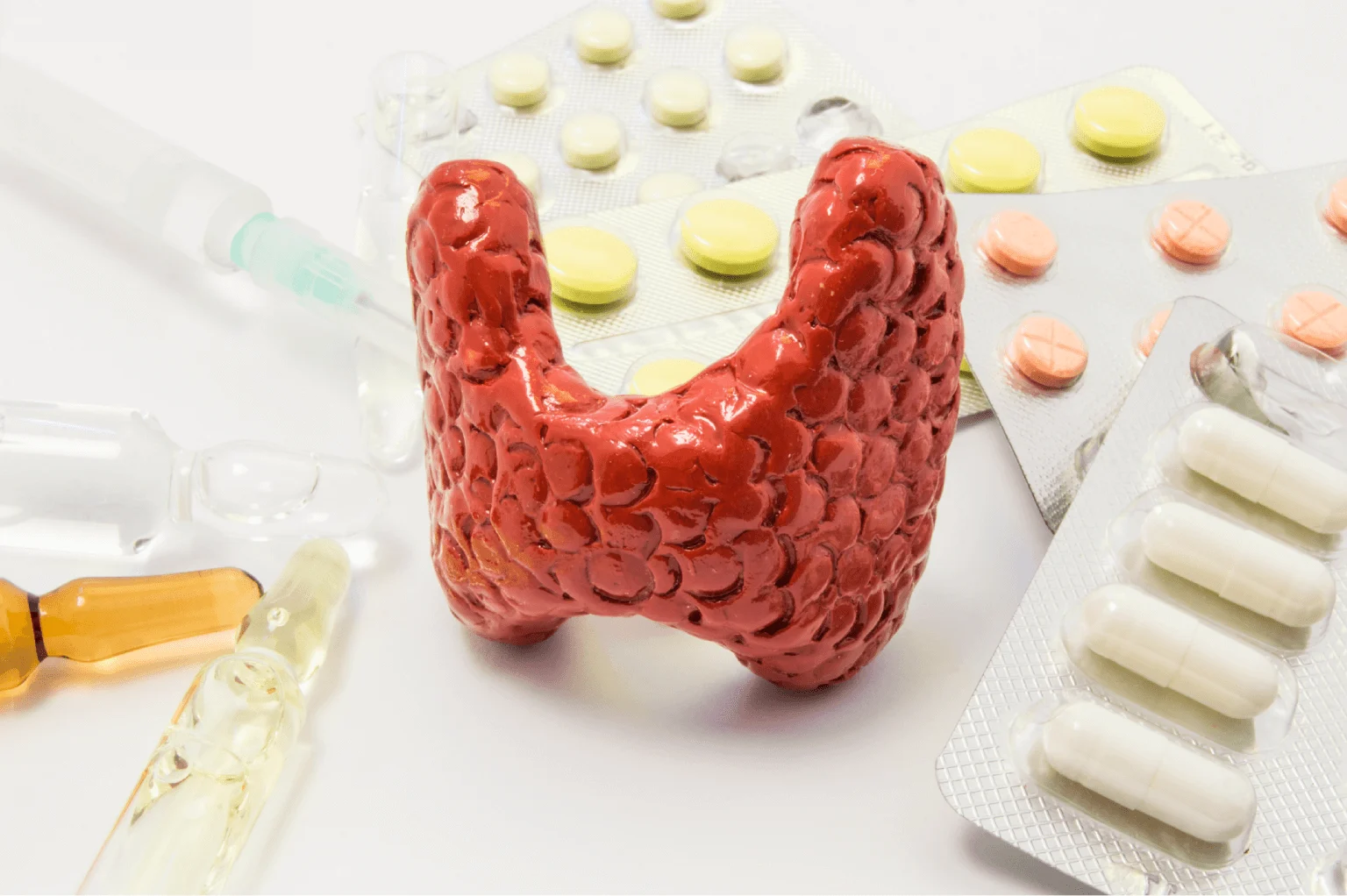
If you’re trying to conceive or navigating fertility treatments, you’re likely paying close attention to things like cycle tracking, hormone levels, and nutrition. But one often-overlooked factor with a profound impact on fertility is thyroid health. The thyroid—a small, butterfly-shaped gland in your neck—plays a big role in your overall reproductive health, and even mild dysfunction can affect your chances of conception and maintaining a healthy pregnancy.
In this post, we’ll explore why thyroid health matters, how it connects to fertility, and what you can do to keep your thyroid functioning optimally during this important stage of life.
Understanding the Thyroid and Its Functions
The thyroid gland produces hormones—mainly thyroxine (T4) and triiodothyronine (T3)—which regulate your metabolism, energy production, and crucially, reproductive hormones. These thyroid hormones interact with your hypothalamus and pituitary gland, which also help regulate ovulation and menstrual cycles (Krassas et al., 2010).
When thyroid function is off balance, it can throw your entire hormonal system out of sync.
There are two primary types of thyroid dysfunction:
- Hypothyroidism: When the thyroid is underactive and doesn’t produce enough hormone.
- Hyperthyroidism: When the thyroid is overactive and produces too much hormone.
Even subclinical hypothyroidism, where symptoms are mild or absent, has been associated with fertility challenges and increased risk of miscarriage (Poppe & Velkeniers, 2004).
How Thyroid Dysfunction Impacts Fertility
1. Irregular or Absent Ovulation
Thyroid hormones influence the secretion of gonadotropin-releasing hormone (GnRH), which prompts the pituitary gland to release LH and FSH—key hormones in the ovulation process. Hypothyroidism can disrupt this chain reaction, leading to irregular cycles or anovulation (Saranac et al., 2011).
2. Hormonal Imbalances
Thyroid dysfunction can raise prolactin levels, which may interfere with ovulation. It can also impact estrogen and progesterone balance—both essential for preparing the uterine lining and supporting early pregnancy (Biondi & Cooper, 2010).
3. Increased Risk of Miscarriage and Pregnancy Complications
Women with untreated or poorly managed thyroid disorders are at higher risk for miscarriage, preterm birth, preeclampsia, and developmental issues in the baby (Alexander et al., 2017). This makes preconception screening and ongoing thyroid monitoring essential.
When to Check Your Thyroid
If you’ve been trying to conceive for several months without success—or are planning a pregnancy—it’s a good idea to ask your provider for a thyroid panel, especially if you have:
- Irregular or absent periods
- History of miscarriage
- Fatigue, weight changes, cold intolerance
- Family history of thyroid disorders
- History of autoimmune conditions (like Hashimoto’s or Graves’ disease)
Standard thyroid tests typically include:
- TSH (Thyroid-Stimulating Hormone)
- Free T4 (Thyroxine)
- Free T3 (Triiodothyronine)
- Thyroid antibodies (Triiodothyronine) (especially important in autoimmune-related thyroid issues)
Optimizing Thyroid Health for Fertility
1. Diet and Nutrition
Certain nutrients are critical for thyroid function, especially:
- Iodine (especially important in autoimmune-related thyroid issues)
- Selenium Supports conversion of T4 to T3. Found in Brazil nuts, sunflower seeds, and fish.
- Zinc Important for hormone balance and immune function.
- Vitamin D Supports immune health and thyroid autoimmunity.
- Iron Low iron can impair thyroid hormone synthesis and is common in women of reproductive age (Zimmermann & Boelaert, 2015).
2. Manage Stress
Chronic stress elevates cortisol, which can suppress thyroid function and disrupt the reproductive hormone cascade (Chrousos, 2009). Practices like mindfulness, yoga, or simply getting enough rest can help reduce systemic stress.
3. Treat Underlying Conditions
If you’re diagnosed with hypothyroidism or hyperthyroidism, treatment may include levothyroxine (a synthetic thyroid hormone) or other medications depending on the condition. Work closely with your healthcare provider to find the optimal dosage—especially if you’re undergoing fertility treatments or are already pregnant.
4. Regular Monitoring
Thyroid hormone needs can change throughout your fertility journey and pregnancy. If you’re on thyroid medication, routine testing every 4–6 weeks is often recommended while trying to conceive and during pregnancy (Alexander et al., 2017).
Final Thoughts
Your thyroid may be small, but its influence on your fertility journey is anything but. By being proactive about thyroid screening, prioritizing key nutrients, and working closely with your care team, you can optimize your hormonal balance and improve your chances of a healthy conception and pregnancy.
Fertility is complex—and while not all causes are within your control, managing thyroid health is one actionable step that can make a significant difference.
References
Alexander, E. K., Pearce, E. N., Brent, G. A., Brown, R. S., Chen, H., Dosiou, C., … & Sullivan, S. (2017). 2017 guidelines of the American Thyroid Association for the diagnosis and management of thyroid disease during pregnancy and the postpartum. Thyroid, 27(3), 315–389. https://doi.org/10.1089/thy.2016.0457
Biondi, B., & Cooper, D. S. (2010). The clinical significance of subclinical thyroid dysfunction. Endocrine Reviews, 31(2), 149–194. https://doi.org/10.1210/er.2009-0016
Chrousos, G. P. (2009). Stress and disorders of the stress system. Nature Reviews Endocrinology, 5(7), 374–381. https://doi.org/10.1038/nrendo.2009.106
Krassas, G. E., Poppe, K., & Glinoer, D. (2010). Thyroid function and human reproductive health. Endocrine Reviews, 31(5), 702–755. https://doi.org/10.1210/er.2009-0041
Poppe, K., & Velkeniers, B. (2004). Thyroid disorders in infertile women. Annals of Endocrinology, 65(3), 190–195. https://doi.org/10.1016/S0003-4266(04)95014-2
Saranac, L., Zivanovic, S., Bjelakovic, B., Stamenkovic, H., Kamenov, B., & Jovanovic, M. (2011). Why is the thyroid so prone to autoimmune disease? Hormone Research in Paediatrics, 75(3), 157–165. https://doi.org/10.1159/000324442
Zimmermann, M. B., & Boelaert, K. (2015). Iodine deficiency and thyroid disorders. The Lancet Diabetes & Endocrinology, 3(4), 286–295. https://doi.org/10.1016/S2213-8587(14)70225-6
